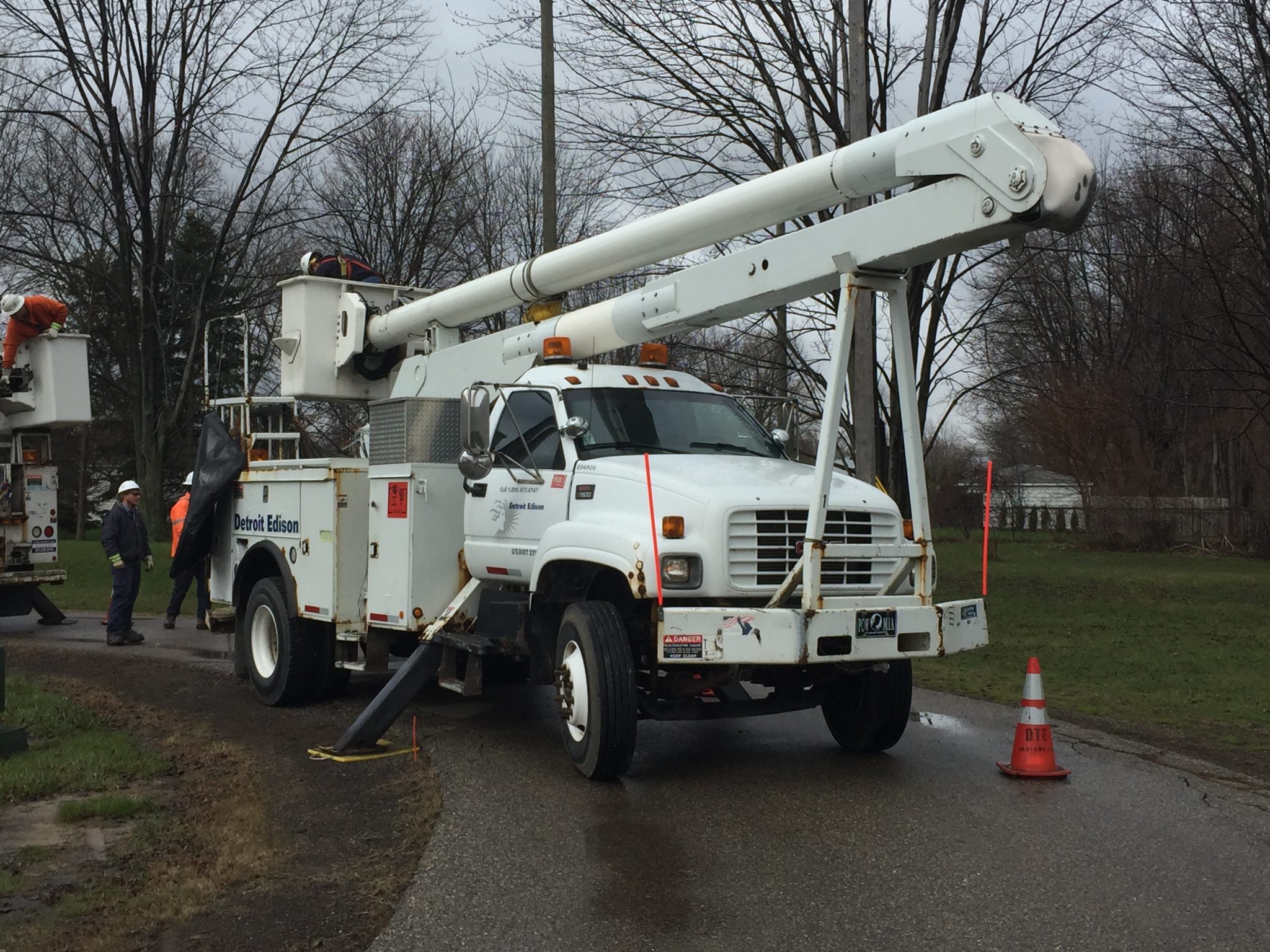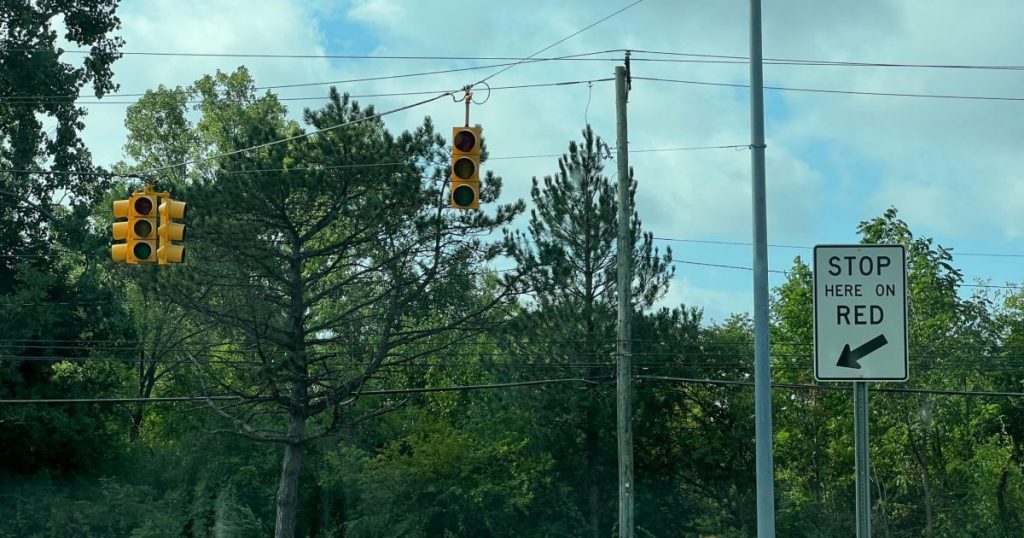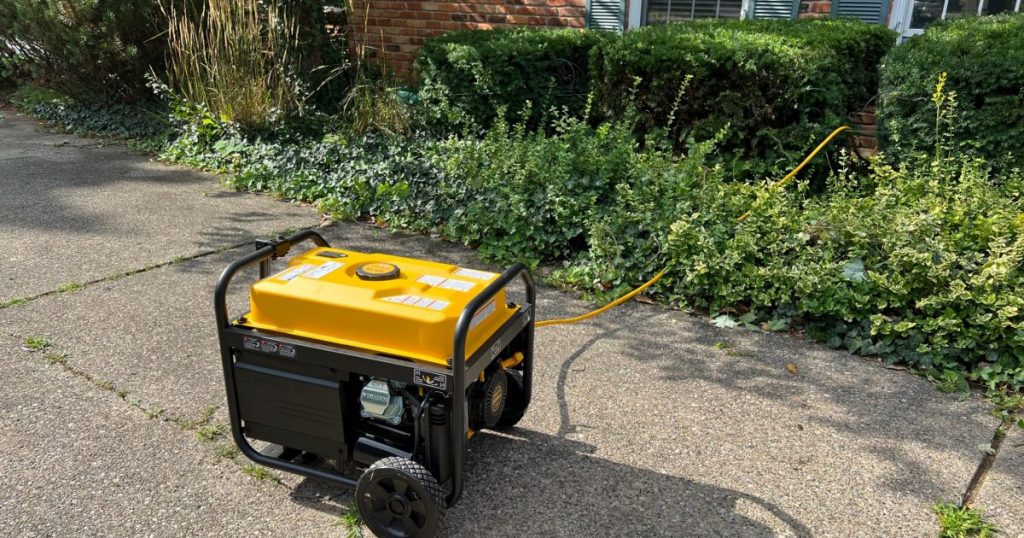Report shows Detroit electric infrastructure lags behind suburbs; DTE Energy disputes race plays a factor
Co-authors We the People Michigan and Soulardarity detailed what they described as an “inequitable electric distribution system.”

Late in August, a line of severe thunderstorms knocked out power to hundreds of thousands of DTE Energy customers in Southeast Michigan. Many were without power for several days.
That’s nothing new to people who live in Detroit, Hamtramck and Highland Park where it’s not uncommon to lose power for several days several times year.
A new report by social justice organizations We the People Michigan and Soulardarity detailed what they described as an “inequitable electric distribution system.”
Reporter Tom Perkins wrote about the report for The Guardian. He tells WDET that there are clear differences between Detroit and the suburbs when it comes to electric infrastructure.
“What they found is Detroit areas with higher minority populations — lower income areas — generally are served by an antiquated system, an old system that really hasn’t been used or newly installed by utilities in decades now,” he says.
“So when you have an antiquated system and a bunch of old pieces of equipment and infrastructure that are falling apart whenever the wind blows, the power is gonna go off a lot more.”

He says the report suggests that the unequal level of service throughout the area is a form of redlining.
“The broader idea is, if you’re a person of color, if you’re in a low income neighborhood, you’re getting worse service than people who live in wealthier and whiter neighborhoods.”
In addition to there being inequality between the suburbs and Detroit, there’s also inequality within Detroit’s own neighborhoods. Perkins says that wealthier, whiter customers in the greater downtown area will see improvements sooner than those on the East Side, in Northwest Detroit or on the West Side.
After this interview initially ran, DTE responded by saying, “In the next five years, 50% of our conversion work is planned to be in Detroit. This $650 million investment includes many communities that are rated in the 80-100 percentile on the State of Michigan’s MiEJ screening tool.”
When asked for a breakout of which neighborhoods would be prioritized, WDET received no response.
Perkins says that any efforts to push DTE to better service minority and lower income neighborhoods would have to come from the state, adding that the City of Detroit doesn’t have the authority to do anything about it.
He says that since Governor Whitmer took office, the Michigan Public Service Commission has made some forward progress, but it could be putting more financial pressure on DTE.
A few years ago, the Service Commission started requiring that DTE pay a $25 credit to customers if their power goes out for more than 120 hours. But $25 doesn’t cover the costs of generators, spoiled food and ruined appliances — expenses that people Perkins talked to in Highland Park have accumulated because their power often goes out for multiple days multiple times a year.
“So a $25 credit really isn’t doing much, and the service commission could bring the hammer down a lot harder on DTE and really make them feel some financial pain, and that’s not even really seeming to be discussed by the Service Commission.”

He says that since publishing his story, DTE has disputed the argument that lower income and minority areas are receiving worse service and are served by an older system and aging infrastructure.
“What they’ve said is, ‘Oh, well, we don’t we don’t consider race or income when we’re making our decisions about where to make improvements or build new infrastructure. We have this this race-blind and income-blind approach.'”
But the report’s co-authors say that such an approach only reinforces existing systemic inequities, and that the only way to overcome them is to deliberately take race and class into consideration.
“You have to think about how that’s lower income and minority people who are getting the worst service, and that this — whether you meant to create it or not — is a racist approach (and) a classist approach to providing power.”
In a statement, DTE said, “Detroit, Birmingham, Grosse Pointe, Royal Oak, Ann Arbor and much of the Thumb are served by a 4.8kV system. This was the standard voltage for all our customers until the early 1960s. There is no redlining involved. It is a matter of when a community was developed.”
DTE has offered to show WDET infrastructure improvements happening in Detroit. WDET will be taking the utility up on this offer after November’s midterm elections.
DTE Energy is a financial contributor to WDET.
Trusted, accurate, up-to-date.
WDET strives to make our journalism accessible to everyone. As a public media institution, we maintain our journalistic integrity through independent support from readers like you. If you value WDET as your source of news, music and conversation, please make a gift today.

